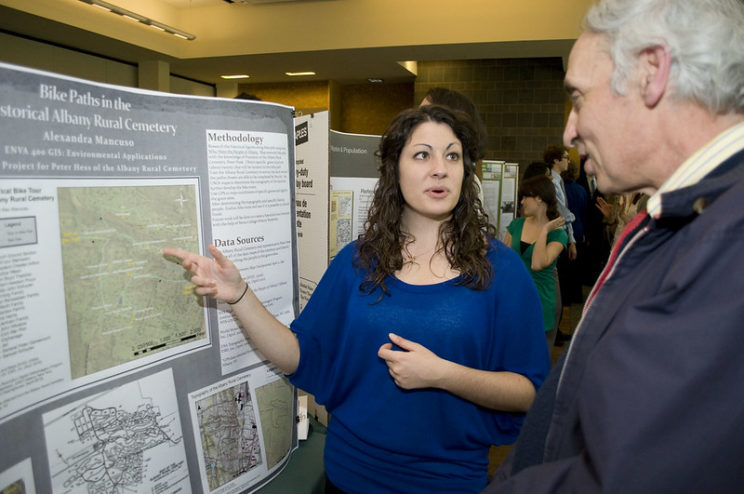
As we approach the end of another contentious election cycle, it would be easy to be discouraged, dismayed, or disappointed in the discord and disunity of our country. But as Christians living and working in academic spaces, we may be uniquely equipped to navigate division and political paralysis as we seek to individually and corporately restore civility in our country. Specifically, the posture of intellectual humility, the process for empirical argumentation, and the practice of intellectual debate can be valuable models to help us more effectively live out our Christian citizenship.
Posture
The posture of intellectual humility can inform how we navigate this period of political discord. In our pursuit of knowledge, we do not have complete certainty in our current conclusions. Instead, as we uncover new arguments and data, we revise if not reject our working hypotheses and expectations. This openness to alternative explanations and the updating of our beliefs can be useful in navigating political conversations with grace and humility. It shows how we hold our political preferences as tentative commitments and not sacrosanct finalities. We can be gracious to others who hold differing political positions and be open to learning from their political experiences and perspectives. When we humbly recognize that our limited understanding of politics is not comprehensive nor ultimate, we do not need to view political disagreement as existential threats to our identities but as opportunities to better understand and perhaps update our political perspectives and expectations.
Process
Second, the process of empirical argumentation and hypothesis testing provide us with frameworks to understand political disagreement and overcome misinformation. Hypothesis generation, empirical testing, and (re)assessment of initial expectations is a recursive process integral to academic life. We can use this same process to examine political arguments and debates to distinguish between deliberate misinformation, (un)intentional misrepresentation, and factual narratives. We can interrogate “truths” that the media, friends, and family share by translating them into hypotheses, considering the types of evidence we would need to adjudicate between competing claims, and evaluating best available empirical data. By using the methodologies, logics, and evidential frameworks we use in our academic lives to determine the plausibility and veracity of political claims, we can become more informed and reasoned in differentiating between fact from fiction.
Practice
And finally, the practice of intellectual debate can be a model for civic engagement where we disagree without being dismissive and engaged others without enraging. The contestation and debate of ideas, theories, evidence, and claims is a defining feature of our academic lives. The academy’s marketplace of ideas is less perfect than what we hope or imagine. That we frequently engage in criticism and challenge of our peers’ theories, models, and claims while remaining colleagues and friends provides a hopeful alternative to the hyper-partisan diatribes that characterize too much of our political discourse. When this practice is merged with commitments to postures of intellectual humility and processes of empirical argumentation, we see a vision by which we may move past political paralysis, from hyper-partisanship to engaged exchange of competing political claims, visions, and passions.
There is no magic bullet or panacea that will quickly restore political civility amidst disagreement and division. But as we participate in the hard work of civic restoration and renewal, let us consider how we can leverage the postures, processes, and practices of our academic lives as resources to overcome political paralysis. In politics, as in our academic life, progress is often slow and incremental. Let us not lose heart but be encouraged and empowered to live integrated lives, confident in our sovereign God and seeking to pursue His Kingdom here on earth and join with our fellow citizens inside and outside of the academy to make real the hope and promise of a more perfect union.
Joshua Su-Ya Wu is a husband, father, pastor’s kid, and social scientist seeking to faithfully reflect Christ in all aspects of his life. He has a doctorate in Political Science from The Ohio State University, works in analytics and data science, and writes about data analytics at Reasonable Research and the intersection of faith and culture at Stuff I Didn’t Learn in Church. He currently lives in Rochester New York with his wife and two kids, and can be reached on Linkedin or on Facebook

Leave a Reply